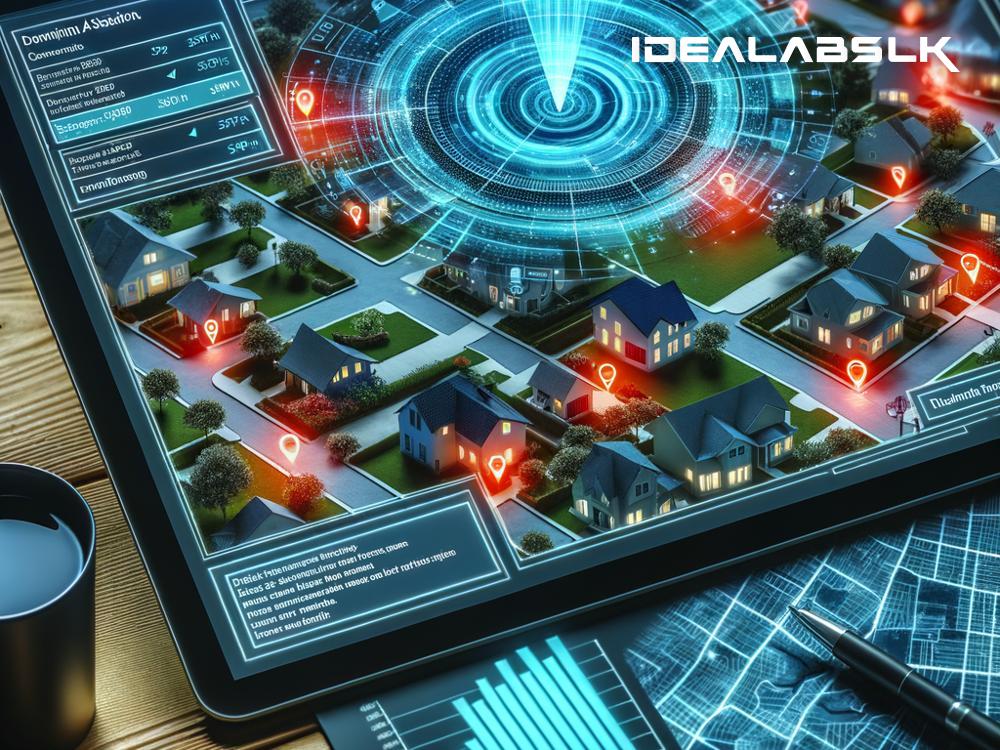AI in Real Estate: How Machine Learning is Changing the Game in Predicting Property Values
In recent years, the buzz around Artificial Intelligence (AI) has reached every corner of industry and our daily lives, from how we shop to how we navigate our cities. One area where AI's impact is increasingly felt, but might not be as evident to the average person, is in the world of real estate. Specifically, the magic of Machine Learning, a subset of AI, is revolutionizing how professionals predict property values, making the process more accurate and efficient.
Understanding Machine Learning
Before diving into its applications in real estate, let's break down what Machine Learning (ML) actually means. At its core, ML involves feeding data into algorithms (sets of rules and calculations) to help them learn and make decisions or predictions based on new data they encounter. Imagine a child learning to catch a ball; the more tries they get, the better they predict where the ball will land. That's essentially what ML does, but with data instead of balls.
The Revolution in Real Estate
Traditionally, determining a property's value involved a lot of legwork and gut feeling. Real estate agents would assess the property's condition, location, and market trends, among other factors, to come up with a price tag. While this method has worked for decades, it's somewhat subjective and can miss hidden value factors not immediately apparent or quantifiable by human analysis alone.
Enter Machine Learning, which can crunch vast amounts of data in the blink of an eye — data covering everything from the property's specs, its neighborhood crime rates, school district ratings, local amenities, and even the economic outlook of the region. By analyzing past sales data and trends, ML algorithms can predict a property's value with astonishing accuracy.
The Benefits and How it Works
-
Accuracy: By learning from a broader set of data points, ML models can predict property values with a level of accuracy that human analysis might miss. This is crucial for buyers, sellers, and investors trying to get the best possible deal.
-
Efficiency: What would take a human days or even weeks (compiling and analyzing data), an ML algorithm can accomplish in seconds, streamlining the valuation process and saving time for all parties involved.
-
Future Trends Prediction: Beyond current values, ML can also forecast future market trends, potentially predicting up-and-coming hot regions before they explode onto the mainstream real estate scene.
So, how does this ML magic happen? In simple terms, the process involves feeding historical and current real estate data into a machine learning model. This model then 'learns' from the data, recognizing patterns and correlations between various factors and the property values. When new data is introduced (like a property up for sale), the ML algorithm applies what it's learned to predict the property's value.
Real-World Application
Imagine you're considering selling your home. An ML-based tool could analyze your home's specifics (square footage, location, age, etc.) along with external data (like those neighborhood features and market trends) to give you a well-informed estimate of your home's worth. Or, if you're a buyer, you can use the same technology to verify that a listing is priced fairly.
Challenges and Considerations
While ML in real estate sounds like a dream come true, it's not without its challenges. The accuracy of ML models heavily depends on the quality and quantity of the data fed into them. Garbage in, garbage out, as the saying goes. Additionally, there are concerns about data privacy and the ethical use of personal information in these analyses.
Furthermore, while these tools can significantly enhance decision-making, they're not a replacement for human expertise. The real estate market's nuances and a property's unique features might still necessitate a seasoned professional’s insight.
The Future is Here
The application of Machine Learning in predicting property values is just the beginning. As technology advances and more data becomes available, these models will only become more sophisticated and integral to the real estate process. For consumers, this means more transparency and efficiency in buying or selling properties. For professionals, it's an invitation to enhance their expertise with powerful tools that offer deeper insights and forecasts.
AI and Machine Learning are not only about futuristic robots and self-driving cars; they're here today, transforming industries in profound ways, including the real estate sector. By embracing these technologies, we can unlock new possibilities and navigate the complex world of real estate with confidence and accuracy. Welcome to the future of real estate, powered by Machine Learning.

